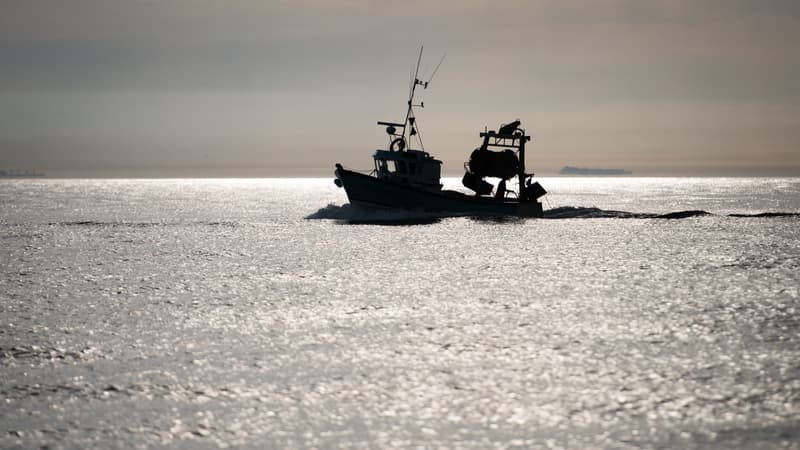“We’re taking over our playground.” Since March, trawling has been prohibited in certain English waters, off Hauts-de-France. An ecological measure for the British but considered “protectionist” by French fishermen, who ask Europe to intervene to protect them. On board his twenty-meter fishing boat moored in the port of Boulogne-sur-Mer, Donovan Leprêtre points out on his maps the 13 marine protected areas (4,000 km2) where fishing has been prohibited since March 22.
“It was a large part of our turnover, between 35 and 40%,” breathes the fisherman. “We have to turn to other areas, but where? We’ll meet in a small circle going around,” he curses from his cockpit, as seagulls scream in the background. The decision of the British Marine Management Organization, aimed at protecting marine species and habitats, concerns fishermen of all nationalities.
5 million euros a year
But according to the thirty-year-old, it is a way for the British to “recover their waters” by “little by little” nibbling away at the European fishermen, who abound in these areas. He asks Europe to “protect” them to “continue making a living” with their profession, “a passion” that offers consumers cod, sardines, cuttlefish or squid. “If the boats can no longer reach these areas, we will run out of products,” says Georges Thomas, president of the general union of fishmongers in Boulogne-sur-Mer.
According to Paris, the impact on French fishing would amount to 5 million euros a year, six times more than for British fishermen. Belgian fishing would be even more affected.
The Hauts-de-France fishing industry, which partly depends on British waters, has been disrupted since Brexit. The first difficulty was “obtaining licenses” to fish in English waters, recalls Etienne Dachicourt, director of the Etaple maritime cooperative. For him, these new restrictions are a “protectionist” measure, and ecology is “a pretext” to “recover sovereignty” over the waters. Especially because in these areas “we fish for squid, a species with high market value.”
Possible “retaliatory measures”
EELV MEP Caroline Roose recalls the need to effectively protect certain marine areas: “If we fish more than is reasonable, we will no longer have resources,” she warns. And the British Government defends itself: this decision “which applies to all ships”, including British ones, “was taken after extensive consultation with a range of interested parties, including British and French shipping organisations.
British fishermen consider the ban “harmful”, arguing through their federation that there is no “sufficient scientific justification to exclude trawling” in these areas. Echoing the concerns of the fishermen, the president of the Hauts-de-France region of LR, Xavier Bertrand, estimated that this measure could sign the “death knell” for the regional fleets. Jean-Noël Barrot, the French minister responsible for Europe, spoke at the end of March of possible “retaliatory measures”, citing in particular “customs duties on British imports”.
A still distant perspective. Eight EU states, led by France, asked Brussels to verify “compliance” with London’s decision, considered potentially discriminatory because it mainly affects foreign fishermen. According to the NGO Oceana, British vessels represent only 6% of bottom trawling fishing activity in the areas that the United Kingdom has decided to protect.
Post-Brexit agreement
The European Commission will raise the issue with London on Thursday during a regular meeting of the “special fisheries committee” created after Brexit. The idea is to seek an amicable solution, before starting a possible dispute resolution procedure. Brussels has already said that it is willing to enter into an impasse on another fishing issue after the ban on sandeel fishing (eel) decreed by the United Kingdom since March 26, a decision that separated Denmark and Sweden.
These tensions could complicate annual negotiations on fishing quotas for 2025 in shared waters between the EU and the UK, and talks on access for EU vessels to UK waters after the planned transition period ends. in 2026 due to the post-Brexit agreement.
Source: BFM TV


